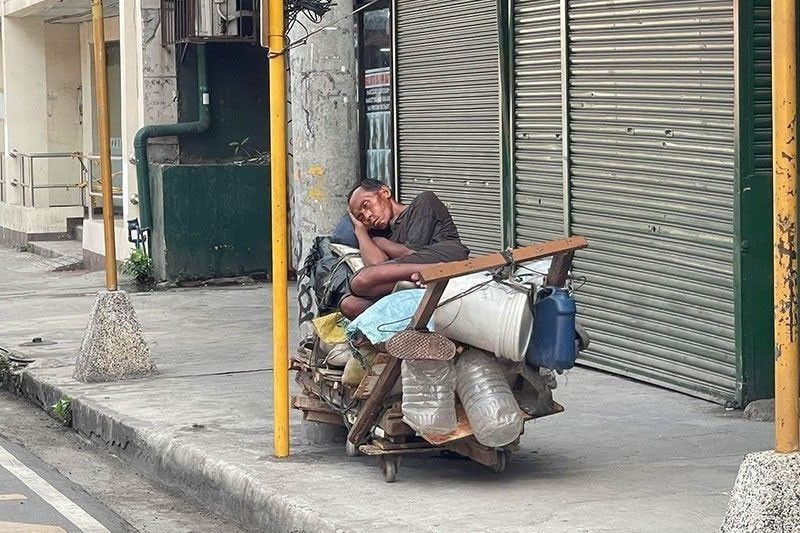Marcos issues EO to boost assistance to street dwellers

MANILA, Philippines — President Marcos has institutionalized a program designed to help vulnerable and disadvantaged persons as well as street dwellers as part of his administration’s anti-poverty efforts.
Executive Order No. 52 institutionalized the Pag-abot program, a pilot program of the Department of Social Welfare and Development (DSWD) that delivers services aimed at improving the conditions of disadvantaged and vulnerable persons as well as “children and families in street situations.”
“It is imperative to institutionalize the Pag-abot program to ensure effective delivery of services towards addressing poverty and social and economic inequality in the country,” the order, signed by Executive Secretary Lucas Bersamin on Jan. 18 by the authority of Marcos, read.
“The Pag-abot program is hereby institutionalized as a platform for an enhanced and unified delivery of services to vulnerable and disadvantaged children, individuals, and families in street situations, through provision of social safety nets and protection against risks brought about by poverty,” it added.
The order noted that the initiative seeks to provide for a supportive and enabling environment that could improve the social and economic status and fulfill the fundamental rights of its beneficiaries. The Philippines is “fully committed” to realizing the United Nations Sustainable Development Goal No. 1 of eradicating poverty, the EO added.
Assistance packages under the Pag-abot program include financial assistance, which will cover the basic needs of beneficiaries while they are in transit from their present residence to their relocation site; transportation and relocation assistance; transitory shelter assistance, which will be given to beneficiaries pending the processing of their return from Metro Manila and other highly urbanized cities to their respective localities.
It will also provide livelihood assistance; employment assistance, which will be given to those who prefer to be employed instead of setting up a micro-enterprise; and psychosocial support, which involves dialogues and specialized sessions and family case management and monitoring in preparation for their reintegration process.
The initiative also involves efforts related to the capability-building of communities; capacity-building of local governments; and community assistance, wherein community grants may be provided to local governments to assist them with projects needed to develop or rehabilitate their areas, increase access to basic services and ensure an adequate and suitable resettlement area for beneficiaries.
The DSWD secretary was named the chairperson of the committee while the secretary of the interior and local government was designated as the vice chairperson.
The committee was tasked to determine within 30 days from issuance of the order the complementary services or assistance packages to be provided by relevant agencies, provide overall direction for the implementation of the Pag-abot program, and engage, consult and coordinate with local governments on the crafting of policies and the implementation of the initiative, among other functions.
The order also required the committee to come up with a comprehensive sustainability plan and an integrated monitoring framework and digital monitoring system containing a database of verified individual, family and community beneficiaries that will measure and capture all developed deliverable areas and indicators.
The program is in line with AmBisyon Natin 2040, a 25-year vision that sees the Philippines as a “prosperous, high-trust, and middle class society,” where the poor are lifted from poverty and people are healthy and educated, among other goals.
- Latest
- Trending

































